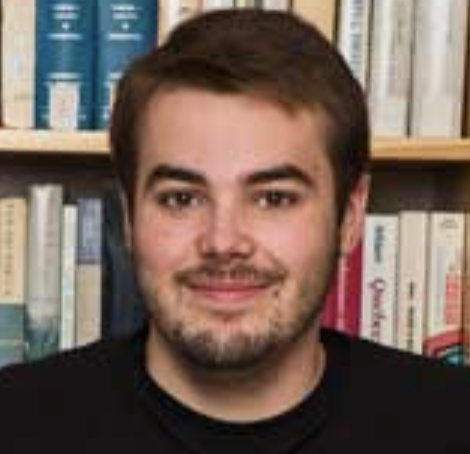Monique Manatch, M.A. Indigenous and Canadian Studies, Class of 2018
 During the summer of 2017, I experienced an exciting digital media practicum with Indigenous Culture and Media Innovations. It was a challenging placement. I wrote grants for digital media projects, produced cultural videos, worked on an online Algonquin language atlas and went to Drag, Norway to produce digital media with the Lule Sami community. I learned a lot about about the creation of digital media in a cultural context not just from my community but also from Indigenous people in another country.
During the summer of 2017, I experienced an exciting digital media practicum with Indigenous Culture and Media Innovations. It was a challenging placement. I wrote grants for digital media projects, produced cultural videos, worked on an online Algonquin language atlas and went to Drag, Norway to produce digital media with the Lule Sami community. I learned a lot about about the creation of digital media in a cultural context not just from my community but also from Indigenous people in another country.
Ingrid Reiche, M.A. English Language and Literature, Class of 2016
 When I came to Ottawa to look for an apartment, there was one tiny little place that had a homemade sign in it reading: “Work like a Captain, Play like a Pirate.” Because my MA thesis was to be focused on a book about pirates, I took the place, and that sign became my mantra for the next two years. I entered Carleton, as a MA in English with the Collaborative Program in the Digital Humanities, and a goal of writing a thesis and creating a digital critical edition of Captain Charles Johnson’s, A General History of the Pyrates, that would investigate its attribution to Daniel Defoe and track the development and expansion of this work over its first four editions from 1724-26. With the support of my advisors, Professors Brian Greenspan and Julie Murray, my written thesis examined how digital editing practices can shed light on the collaborative nature of eighteenth-century print culture, dispelling notions of authorship as a form of original ‘genius’, and signaling a literary economy built largely on its own brand of piracy, in an age where copyright was in its youth, and one that in many ways mirrors our contemporary digital landscape.
When I came to Ottawa to look for an apartment, there was one tiny little place that had a homemade sign in it reading: “Work like a Captain, Play like a Pirate.” Because my MA thesis was to be focused on a book about pirates, I took the place, and that sign became my mantra for the next two years. I entered Carleton, as a MA in English with the Collaborative Program in the Digital Humanities, and a goal of writing a thesis and creating a digital critical edition of Captain Charles Johnson’s, A General History of the Pyrates, that would investigate its attribution to Daniel Defoe and track the development and expansion of this work over its first four editions from 1724-26. With the support of my advisors, Professors Brian Greenspan and Julie Murray, my written thesis examined how digital editing practices can shed light on the collaborative nature of eighteenth-century print culture, dispelling notions of authorship as a form of original ‘genius’, and signaling a literary economy built largely on its own brand of piracy, in an age where copyright was in its youth, and one that in many ways mirrors our contemporary digital landscape.
While the written thesis forced me to focus my analysis and work closely with the English Department, the Collaborative Program in the Digital Humanities required my thesis to have a significant digital component. It was the digital project enabled me to build up a knowledge base in TEI and introduced me to programming in XSLT. The Collaborative Program gave me the opportunity to work with students from across a wide range of disciplines and build an interdisciplinary approach that is valued in academia today. After some discussion with Prof. Greenspan about the Versioning Machine, the interface I used to present my critical edition, and my own interest in usability, he suggested I conduct a formal usability survey. By conducting this survey, I was in contact with faculty and students from disciplines in the arts and humanities at Carleton and elsewhere. My work caught the eye of the team who created the software, and I shared the results of the survey with them. Making contacts outside my home discipline, in the English Department, building up my knowledge of a metadata standard and applying it outside of a library setting were some of the skills I gained at Carleton. Getting some additional experience in libraries and archives through my practicum, working as a teaching assistant, and a job in the Discovery Centre also helped put me in a good position to enter the job market in my desired profession as an academic librarian.
In my new position as the Metadata Librarian with Libraries and Cultural Resources at the University of Calgary, I am responsible for creating and/or revising templates for digital and digitized materials. I provide metadata as a service to faculty from various departments for grants and projects, and am in the process of mapping metadata for our library management system migration. Consultation with faculty members keeps me engaged and will enable me to contribute to scholarly research. I’m excited to continue thinking about and working out the process between encoding texts in TEI and producing new forms scholarship, whether they are texts, editions, topic models, or something else.
PS. I took the pirate sign with me to Calgary!
Rob Blades, M.A. History, Class of 2015
 When I applied to the Public History program, I knew I wanted my final project to be memorable. My project explored the industrial decline of Pembroke, Ontario, a logging town in the Ottawa Valley. I created an interactive map using Leaflet, a Javascript based mapping tool. The website also includes interactive timelines that use soundscapes to set the historical scene. I gained valuable web design experience that helped me land my first job! Most importantly, the digital skills I learned allowed me to present a local history from a small community to people around the world. Through the DH program I was able to create an interactive website that had a much larger impact than a traditional thesis.
When I applied to the Public History program, I knew I wanted my final project to be memorable. My project explored the industrial decline of Pembroke, Ontario, a logging town in the Ottawa Valley. I created an interactive map using Leaflet, a Javascript based mapping tool. The website also includes interactive timelines that use soundscapes to set the historical scene. I gained valuable web design experience that helped me land my first job! Most importantly, the digital skills I learned allowed me to present a local history from a small community to people around the world. Through the DH program I was able to create an interactive website that had a much larger impact than a traditional thesis.
The DH program provided me a lot of vital digital and technological experience. Daily, I use many of the tools and skills I learned through the program in the workplace including accessible and responsive web development and data analysis tools like R. Without a doubt the DH program has a continued impact on my life as I constantly imagine potential digital projects I now have the skillset to achieve.